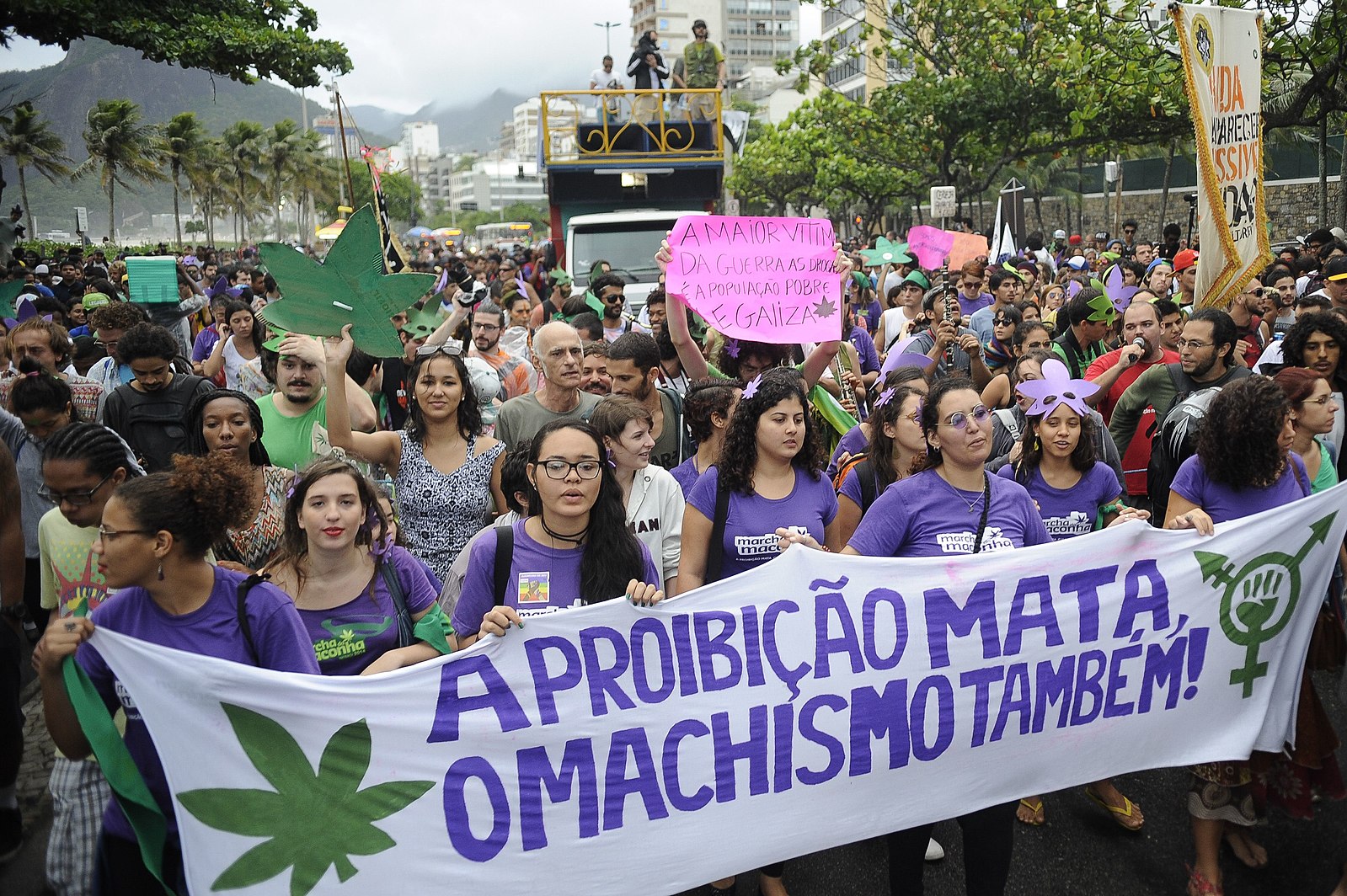In a month of political whiplash for Brazil’s battle over medical marijuana access, public outcry has delayed regulators’ bid to reinstate prohibition for almost all eligible patients.
An October 11 resolution by the Federal Council of Medicine (CFM), the agency with which Brazilian providers must remain in good standing or risk their license being revoked, limited CBD prescriptions to only a small handful of medical conditions and banned THC for all conditions—including cancer, Alzheimer’s, chronic pain or multiple sclerosis. Doctors were also banned from lecturing on the subject in academic settings.
“Patients who won the right to receive medication from the state, through the courts, [feared] having these legal decisions suspended,” Monique Prado, a parliamentary assistant in drug policy at the Legislative Assembly of Rio de Janeiro, told Filter. “And that their clinical situation would worsen.”
Harm reductionists, activists, legislators and providers had been bracing for such a development. The public backlash was immediate—and powerful. As a result, a second period of public comment (following an initial one in July) is now open, and will remain so through December 23.
“The [CFM resolution] was political,” Renato Filev, a neuroscientist and researcher at the Brazilian Centre for Information on Psychotropic Drugs of the Federal University of São Paulo, told Filter. “Civil society, the people who need cannabinoids for therapeutic purposes—and also the doctors who prescribe the cannabinoids—had to mobilize.”
CFM defended treating COVID with hydroxychloroquine, but was not so concerned with provider autonomy when it came to cannabis.
Medical cannabis access in Brazil has gained ground in recent years. In June 2021, cultivation and commerce were approved for licensed sellers. A patchwork of individual legal victories had allowed for some patients to receive prescriptions and begin using treatment. In June 2022, three patients won authorization to grow cannabis at home.
The resolution threw that legality into chaos.
Though CFM had allowed cannabis to be prescribed, ideologically it was known to be inclined toward prohibition. But the timing of this resolution was a surprise for many.
Alexandre Liblik, doctor and professor of medicine at Pontifical Catholic University of Paraná, told Filter that the current iteration of CFM comprises “acolytes subservient to far-right Jair Bolsonaro [who] seemed to choose precisely the pre-election period to publish this resolution.”
During the height of the pandemic, CFM had supported providers who pushed for treating COVID with the unproven hydroxychloroquine. Yet they weren’t similarly concerned with medical autonomy when it came to the prescription of cannabis, despite its myriad proven medical applications. No medical cannabis research more recent than 2015 was cited in CFM’s scientific review.
“People opposed to regulating the medicinal use of the plant [claim] it can boost illegal sales promoted by ‘drug trafficking,’ which is still very much associated with the Black population,” Prado said. “A prejudiced and racist view [supported by] prohibitionist ideology.”
Even under the current rules, medical cannabis is overwhelmingly inaccessible, in terms of cost as well as availability of supply. Many like Prado believe the way forward is to regulate domestic cultivation, and to cover cannabis treatments under Brazil’s universal public health care system (SUS).
With President Bolsonaro narrowly defeated by President-elect Luiz Inácio “Lula” da Silva of the left-wing Worker’s Party, CFM may not enjoy the same unreserved support as it did under the previous administration.
“A president who is less conservative, and more inclined to implement policies directed at the poorest population, will be fundamental to advancing full regulation and provision by the SUS,” Prado said.
Photograph via Wikimedia Commons/Creative Commons 3.0
Interviews have been translated from Portuguese





Show Comments